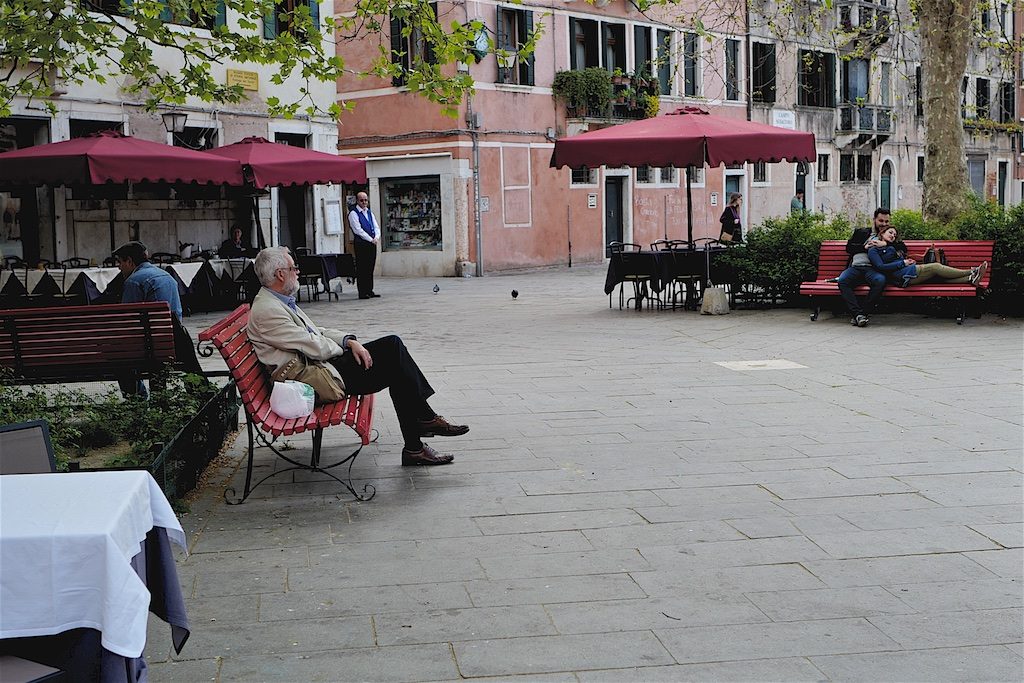Watergate 2.0 looms
From the New Yorker:
There is now significant evidence that Trump has been trying to cover up something related to the F.B.I. investigation. We just don’t know what it is. In Watergate, Bernstein noted, “we knew there was a break-in and also that there was a massive campaign of political espionage and sabotage to undermine the political opposition.” But with Trump, he went on, it could be a range of offenses: “Is it specific acts of collusion? Is it his financial dealings with ethno-Russians and countries of the former Soviet empire or those of others around him? Is it about obstructing these investigations because they’ll reveal inappropriate contacts between the campaign and people acting in the interests of a hostile foreign power, perhaps including the President? We don’t know yet.”
The longer this goes on, the more it feels like Watergate.
Religion in black and white
Colour coding
Microsoft’s pre-emptive strike for the moral high ground
Today’s Observer column on the fallout from the ‘ransomeware’ attack.
The attack was good for the computer-security companies, some of whose shares rose sharply. But other companies exploited the marketing opportunities offered by the crisis. First out of the blocks was Microsoft, whose product deficiencies lay at the heart of the problem. Brad Smith, the company’s president, made a pre-emptive strike for the high moral ground. “We take every single cyber-attack on a Windows system seriously,” he blogged, “and we’ve been working around the clock since Friday to help all our customers who have been affected by this incident. This included a decision to take additional steps to assist users with older systems that are no longer supported.”
Smith went on to castigate governments – correctly – for stockpiling vulnerabilities rather than reporting them to companies. But what took the biscuit was his implication that the root of the problem was that so many people were foolish enough to continue using old versions of Windows rather than upgrading to the latest version (and forking out for both the upgrades and the new kit needed to run them). So the solution is to keep buying the latest version.
You have to admire the sheer brazenness of this: blaming users for continuing to use your defective product. It’s like Mark Zuckerberg’s idea that the solution to the problems caused by social media is… more Facebook. And it’s the kind of thinking that gives hypocrisy a bad name…
Street life
How things change (and how corporate valuations are crazy)
Yesterday marked the 20th anniversary of Amazon’s IPO. It’s market cap stands today at $459.5 billion. Walmart, meanwhile stands at $229.5 billion. So Amazon is apparently twice as valuable as Walmart.
And yet according to Recode…
Walmart has well more than three times Amazon’s annual revenue, and five times its net income. But Jeff Bezos and Amazon have sold a vision of revenue growth over huge net income figures — and Wall Street has largely bought in.
Also: Amazon employs 341,500 people. Walmart provides jobs for 2.3 million.
Go figure.
Stages of denial on Fox News
- White House says that nothing happened.
- If it happened, it isn’t a big deal.
- Maybe it was imprudent, but it’s not illegal!
- Hilary was worse.
From Don Moynihan, @donmoyn
Trump updates his Russian friends on the latest intelligence
Now this you couldn’t make up. (Actually, given Trump, you could).
President Trump revealed highly classified information to the Russian foreign minister and ambassador in a White House meeting last week, according to current and former U.S. officials, who said Trump’s disclosures jeopardized a critical source of intelligence on the Islamic State.
The information the president relayed had been provided by a U.S. partner through an intelligence-sharing arrangement considered so sensitive that details have been withheld from allies and tightly restricted even within the U.S. government, officials said.
The partner had not given the United States permission to share the material with Russia, and officials said Trump’s decision to do so endangers cooperation from an ally that has access to the inner workings of the Islamic State…“This is code-word information,” said a U.S. official familiar with the matter, using terminology that refers to one of the highest classification levels used by American spy agencies. Trump “revealed more information to the Russian ambassador than we have shared with our own allies.”
WannaCry? Not really
If you’re overwhelmed by all the good, bad and simply awful reporting of the WannaCry ‘ransomware’ attack, here are links to two sane and well-informed pieces.
- Ross Anderson’s post on Light Blue Touchpaper — “Bad Malware, Worse Reporting”.
- Ben Thomson’s long and thoughtful post on his Strachery blog — “WANNACRY ABOUT BUSINESS MODELS”.
Also…
The Economist had a useful briefing a while back on the general topic of our chronic insecurity — “Computer security is broken from top to bottom”.
And of course it goes without saying that this whole debacle provides a salutary confirmation of the foolishness of demanding that there should be ‘backdoors’ in encryption ‘for government use only’. WannaCry was turbocharged by some software written by the NSA (which knew about the Windows XP vulnerability but didn’t tell Microsoft) to exploit it. The moral: if the government knows about a vulnerability, then other people will too. And some of them will be more even more unscrupulous.




